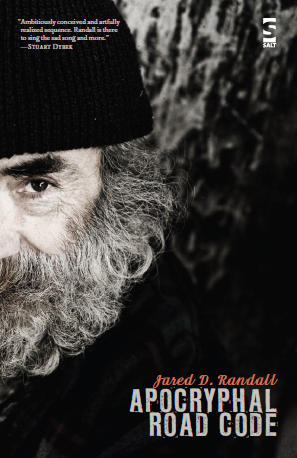T. J. McIntyre
The Ficus tree had not been there a moment ago.
“Now, where’d you come from?”
The Ficus didn’t answer.
Charles shivered as a soft breeze blew down from the bathroom’s heater vent overhead and over his thin wrinkled skin, ruffling the little green waxy leaves on the Ficus’ branches that appeared to reach out to him.
“Not saying, huh? All right, that’s fine. Just fine.” He wiped spittle from his grey-stubbled cheek then poured a bit of water into a Dixie cup and emptied it into the Ficus pot.
Just a little water, Charles. Just a little, else you’ll kill it. Sherry had always loved the tree.
“Can’t let you starve, now can I?”
The Ficus leaves swelled.
“Well, goodnight.”
The walk from the bathroom to the bedroom had not always taken so long. What should be seconds, took minutes now and required the use of Gary.
Sherry had christened the walker fifteen years ago after Charles’ best friend passed away in a car wreck. He’d made fun of her for it, thought it silly to name the walker, morbid in a way, and he refused to call it Gary while she was still alive. Funny, the way eccentricities of the lost can become necessities after they’ve gone.
It wasn’t that the walker ever replied in words, that would be crazy, but somehow, the wheels didn’t seem to creak as much when he called it Gary. He was a handy friend with a seat for the long walks across the hall or from the kitchen to the couch in the family room. He used Gary’s seat, now, to catch his breath.
“Is it smoky in here, Gary?” He sniffed into the air. The usual dank smell of the hallway had definitely changed. He’d quit smoking decades ago and he never smoked the clove kind. That was Gary’s, the real Gary’s, brand.
Gary sat silent beneath him.
A rusty water-stain had developed in the bedroom’s ceiling corner, as if the house, like he, knew its end was soon coming. The digital clock on the nightstand read 7:20 pm.
He stood Gary by the bed and pulled the seat down again then took off his house slippers. “You wouldn’t believe it, Gary, but back in the day I was more likely to hit the hay at seven in the morning than seven at night. Ah, fuck! Getting old sucks. You’re lucky you ain’t… hell, I guess there’ll come a day that you’ll be rusting in a scrapheap somewhere, too. But that will be a long time from now, Gary. That’ll be long after I’m dead and buried and in that plot next to my wife. I wonder if that plot will still be there. They just built a new Publix next to the cemetery. I figure it’s just a matter of time before they move our bones for a Target or maybe a Wal-Mart.”
Gary felt just a little colder beneath him.
“All right, old boy,” Charles grunted, “time for some shuteye.” He stood and leaned on Gary for support then let himself fall backwards into the bed and into a spray of green leaves.
“What the hell? Gary there’s a tree in my bed.”
Leaves fluttered across his shoulder. A branch reached up and caressed the thin gray hairs at each side of his head like Sherry used to do when she put him to sleep on nights when his worry was too much or he was too excited to let go of the day.
Charles rolled over and stared at the faded black and white picture of his wife he kept on the nightstand. She stood in the kitchen, smiling, young. Another branch ran tenderly over his chest. Soon, his pillow grew wet with tears.
***
When morning broke and sunlight filtered through the windows, the tree was gone. Only a few fallen brown leaves and a small pile of dirt lay on the bed.
Bacon and coffee drifted on the air, into bedroom from the kitchen. Charles grabbed Gary’s handles. With a grunt he lifted himself and began the epic shuffle. Placemats, silverware, and china lay on the wood table. A small white vase held a single red rose. He left Gary and sat down and studied a plate with three strips of dark, crispy bacon, fried black to his liking, two pieces of crunchy toast slathered in black cherry preserves, two fried eggs like yellow googly eyes. He stuck his fork in one of the eggs and watched as the yolk came up like an oozing volcano of sunshine.
“Perfect.” He dug in, not remembering the last time he had felt so hungry. The Ficus stood silent and still in the center of the kitchen, a grease-splattered apron hanging from a branch.
***
After breakfast, Charles wrapped himself in a lavender Snuggie he’d given Sherry one Christmas. Pilled and stained, it was warm and sometimes still smelled like her. Cocooned on the couch, he watched his daytime talk shows, his favorite being the one with four celebrity women who sat around, drank too much coffee, smiled in variations of the same fake gesture, and ultimately took turns insulting each other by the end of the show. It was a riot. Sherry had never approved, never appreciated a good argument.
The Ficus moved further away from him and the couch.
“Don’t like ‘em, huh? I don’t really like ‘em either. They’re just fun to watch. Remind me of the clucking hens in the henhouse back when I was a boy, I guess.”
He’d parked Gary by the far end of the couch. The walker and the Ficus stood side by side, now. Sunlight glared off the steel of Gary’s frame.
Charles fumbled with the remote — he had never gotten used to handling this new one with its satellite hookup and whatnot. He changed the channel to a soap opera, General Hospital. It had been Sherry’s favorite.
“There. Better?”
The Ficus bloomed.
***
He woke from his mid-morning nap to Divorce Court playing on the television. He had been dreaming of Sherry. She was young and they were making love in a field of grass and saplings that grew and embraced them with interlocking branches as they held each other.
“That was a nice dream.” He stretched his arm up as far as he could reach, chest high.
His voice echoed, as if he was the only one left in the family room. The Ficus was gone. So was Gary. Sounds came from the bedroom.
His knees popped and buckled as he pushed himself up from the couch. All those years jogging instead of cycling like Doc had recommended before he died young of heart disease and lung cancer. Damned any which way. He shuffled across the floor, knees cracking, stopping a few times to catch his breath and lean against a wall.
A crash sounded from the bedroom.
“What the hell’s going on in there?”
He shuffled faster. A pain shot from his knees straight to a spot behind his eyes.
The bedroom door was locked. He fumbled with the penny lock, working against the mechanism with his thumbnail.
“Ah hah!” He pushed the door open then clenched a hand over his heart. “What?”
The Ficus and Gary lay in bed together. Gary smoked a cigarette.
He tried to say something but found it hard to speak. A sharp pain dug into his armpit and he leaned against a bedside table, knocking over the faded photograph of Sherry young and smiling. He lacked the strength to hold himself up.
From the floor, he heard the sound of breaking pottery and the shuffling of wood against wood as the Ficus slipped out of her planter and moved around the bed to where he lay. Her roots crawled over his back, covered him with dirt and the stench of fertilizer.
He wanted to say something about friendship and betrayal. A more clever man would have known what to say, but all he could do was turn and stare at the fallen photograph of Sherry. Her eyes glittered in the faded black and white as if reflecting the glow of their first year of marriage though he knew it was only the morning light. Behind Sherry sat the Ficus tree, a younger sapling version of its older, wider self that now lay against him on the floor, dirt and fertilizer covering them both. In the photograph, the Ficus’ rubbery leaves reflected the brightness of the sun just like Sherry’s eyes.
Over the side of the bed, peaked Gary, still smoking a clove cigarette, admiring the view.
T.J. McIntyre has seen his short fiction and poetry published in numerous publications. He serves as a moderator for the Lobo Luna and Western Writers writing communities. He lives in rural Alabama with his wife, two young sons, an aging Doberman mix, five tiger barbs, and three salt-and-pepper catfish.






